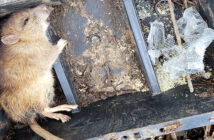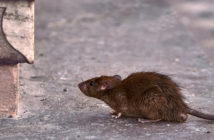On 22 September the EU Parliament voted, at First Reading, in favour of the new Biocidal Products Regulation to replace the existing Biocidal Products Directive.
The legislation drafted by German MEP Christa Klass (EPP) was approved by 550 votes in favour, 22 against and 80 abstentions. The Regulation will now go through more discussion and voting at a Second Reading during 2011. So watch this space!
In the official press release, Ms Klass commented: “We need biocides to maintain high hygiene standards and prevent disease. I am confident that this legislation will ensure we can reap the benefits of these products, while protecting against the dangers.”
The broad aim of the draft regulation is to update EU rules that govern all biocidal products ranging from insect repellents to water treatment chemicals – including key pest control products such as insecticides and rodenticides.
The EU Parliament voted to ban the most toxic chemicals – especially those that are carcinogenic, harmful to fertility or interfere with genes or hormones. It also tightened up requirements to gradually replace other hazardous substances with less harmful alternatives.
However, it did recognise that occasions do arise where active substances which may have fallen within this toxic classification may, at times, be needed to protect human health, other animals or the environment – for example to control rodents in the absence of effective alternatives.
As part of the new Regulation, a centralised European Chemicals Agency will be gradually phased in. It will be tasked with assessing applications for new and ”low-risk” products from 2013 and most other biocides from 2017. But individual Member States should continue to decide on products that potentially pose the biggest health risks and should also retain the right to impose extra controls on the use of products approved at EU level.
Difenacoum has no additional restrictions
MEPs also voted on a raft of specific amendments to the new Regulation. One of them would have imposed additional restrictions on the commonly-used rat poison, difenacoum. The amendment signalled the wish of some MEPs to put even more restrictions on some biocides than those considered necessary and appropriate by the European Commission.
Fortunately, this amendment was defeated – but only just. 304 voted for, 334 against and 15 abstained.
This outcome owes much to the extensive lobbying undertaken by all sectors of the European pest control industry. With such a close vote it is likely the pressure on difenacoum, and probably on other anticoagulants, will remain. This might involve pack size limitations, the use only in tamper-resistance boxes and for professional use only.



